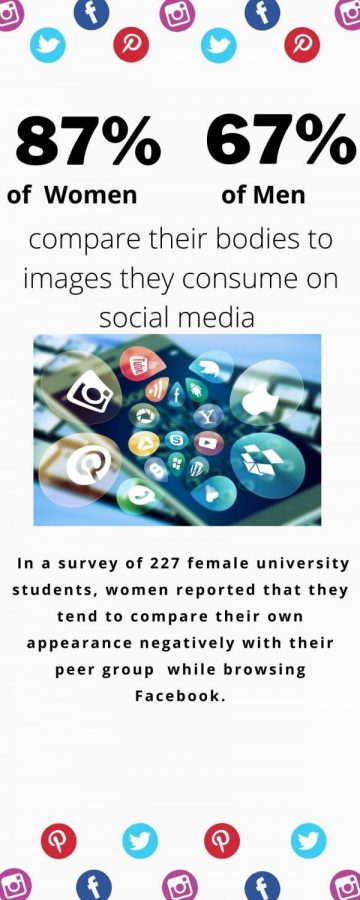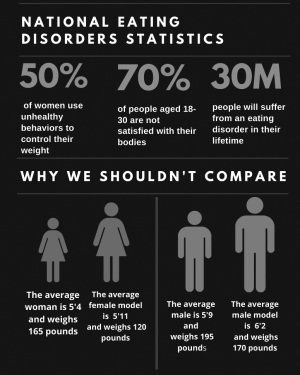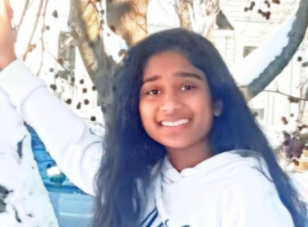Social media negatively impacts body image
Employment growth of lawyers are expected to grow by 10% from 2010 to 2020
October 29, 2020
On any platform there are a seemingly endless number of posts showing people with perfect hourglass figures, accompanied by hashtags that advertise how one can get a bikini body like them. This may lead people to compare their own bodies with those portrayed online. In a report by King University, 87% of women and 65% of men compare their bodies to images they see on social media.
“When you’re scrolling through your [social media] feed, most of the posts consist of thousands of models showing off their ‘perfect’ bodies,” freshman Ambreen Gandhi said. “It [could] make people feel like their body isn’t beautiful.”
Body shaming on social media is not exclusive to only one specific body type. Those considered “too skinny” are criticized for not eating enough, and those considered “too chubby” are often told to lose weight.
Shaming someone for their appearance can also trigger body dysmorphia, a condition in which a person has obsessive thoughts about perceived imperfections in their physical appearance. These harmful messages can feed into one’s insecurities and cripple their mental health.
“Body shaming is normalized on social media, and even a rude comment by a random person online about someone’s appearance can harm others,” Gandhi said.
Unrealistic body standards on social media reinforce the idea that beauty comes in one size only. With this lack of diversity in body types, people might feel the need to alter their body in order to fit the standard and be considered “beautiful.”
“Social media makes people more aware of the prevalence of skinny bodies being more attractive and other body types being unattractive,” senior Dhyuthi Chegu said. “It gives people the impression [that if they don’t] achieve that standard of beauty, [they aren’t] good enough.”
Many selfies are being altered using photo editing software to make them seem flawless. Not only does the widespread use of photo editing software among social media’s largest influencers further instill unrealistic beauty standards in society, it also conveys an idealized image to impressionable users.
“Photoshop is okay if it’s minimal, but if it’s done all the time, then it can be harmful to body image,” freshman Bhavika Khona said.
According to The Buchtelite, social media surrounds people with unrealistic images that promote the idea that having flawless physique is common and easily attainable. People are often pressured to meet these unrealistic expectations, which can encourage extremely unhealthy habits such as weight loss pills and eating disorders.
There are also many influencers who decide to get plastic surgery, but deny it if asked. Though there is nothing wrong with getting cosmetic modifications, influencers who choose to lie about their procedures just for the satisfaction of compliments may deepen their audience’s insecurity about their own flaws. According to a 2017 poll taken by the American Academy of Facial plastic and Reconstructive Surgeons, 55% of facial surgeons had patients who wanted surgery to simply improve their appearance.
“Many people on social media have gotten plastic surgery and lied about it, not realizing the wrong impression that they are giving to their audience,” Khona said.
Social media isn’t the worst thing to exist, but it can be improved. There should be body diversified representation to show people who may not fit the ideal body type, that their bodies are included and beautiful. There can be more sites like @i_weight, that promote radical inclusivity on Instagram. There can be fewer hashtags telling people to get an hourglass figure and more hashtags telling people to be confident in their own bodies.
“I think that social media needs to start normalizing different body types and spread more positivity,” Gandhi said. “People need to know that they are beautiful the way they are and they don’t need to change themselves to fit in.”




